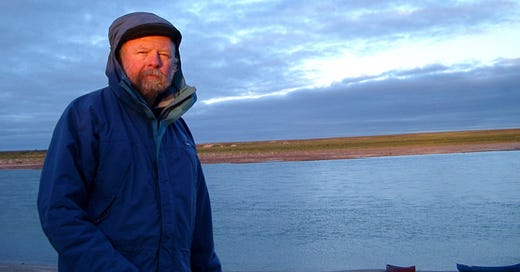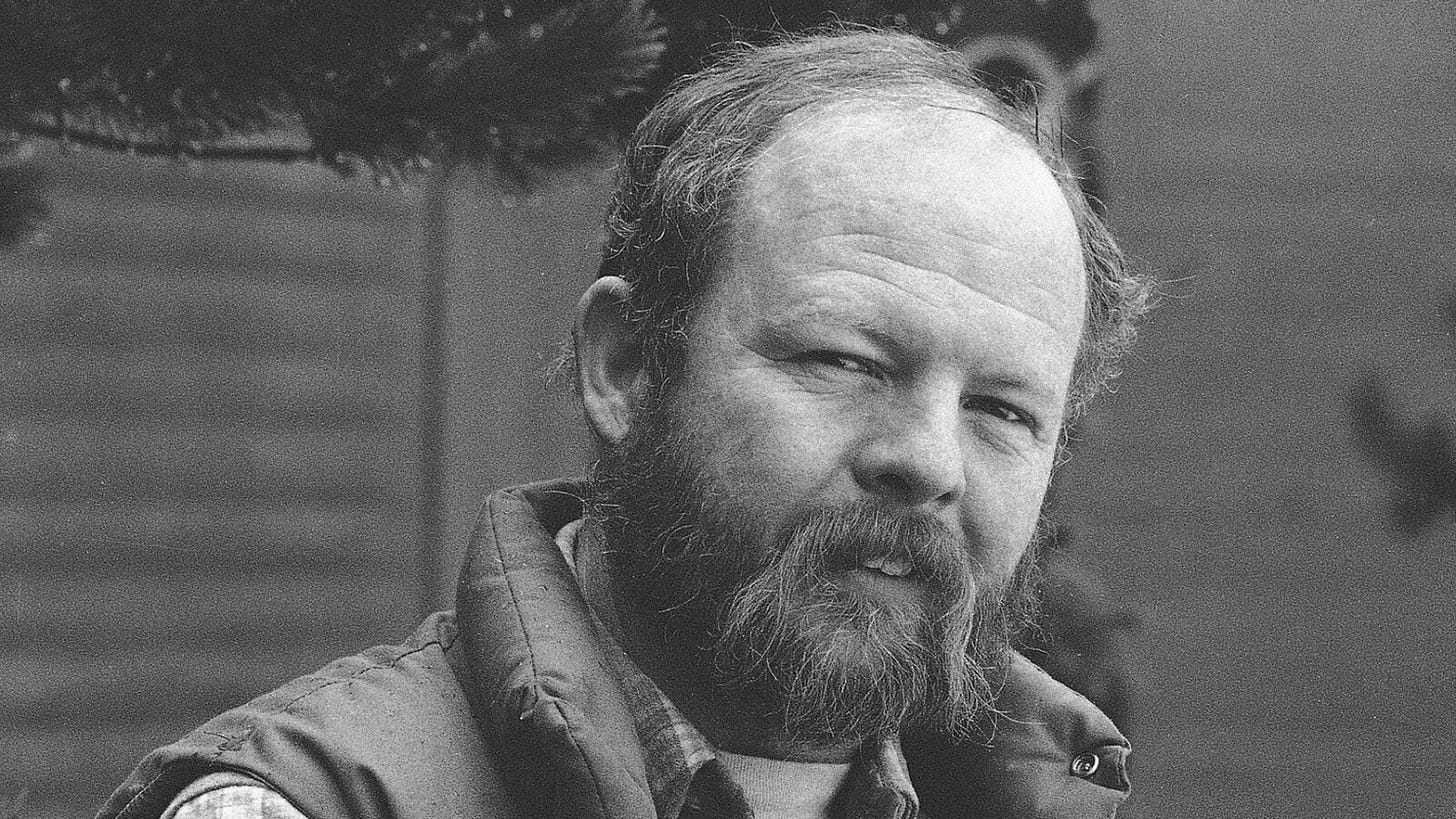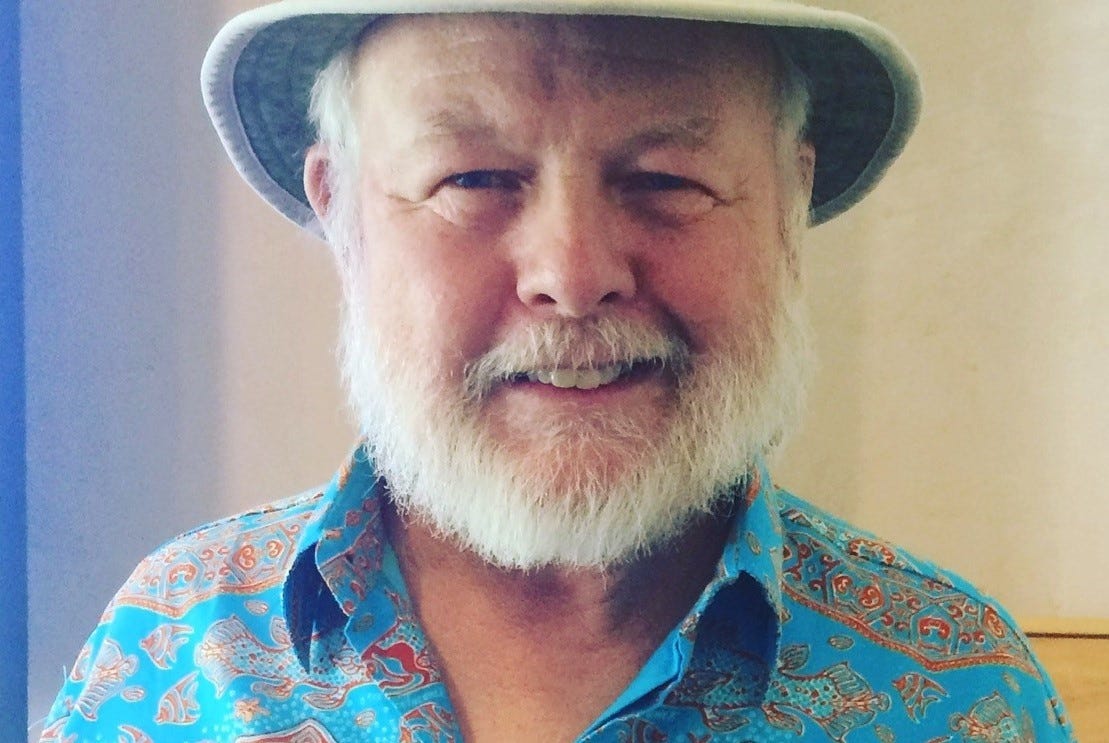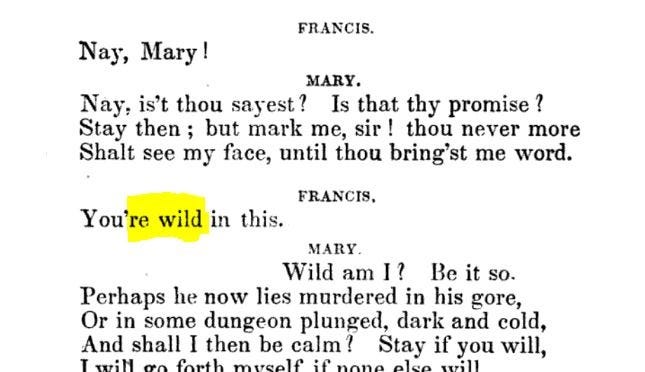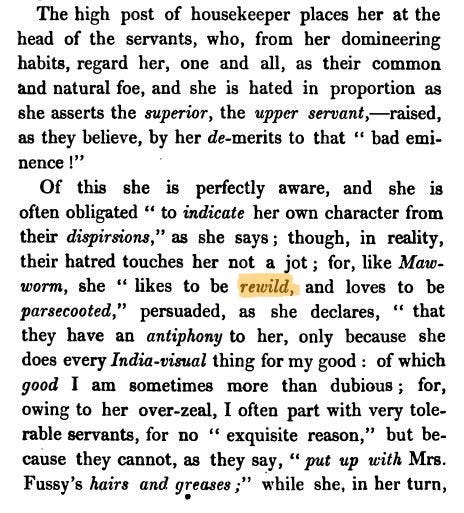I wanted to find out about the origin of the term 'rewilding' and found that, according to the Cambridge University Press (and why wouldn't I, right?), it put in a first appearance in print fairly recently, in 1990 (it's actually 1844, but more on that later!). Back then, the term was neither clear, nor understood as the thoroughly positive global movement it has become.
I'm sure many of you know about the origin of the term - I didn't. A quick bit of googling immediately led me to Dave Foreman, an American conservationist and tireless advocate for the wild. It was he who appears to have originally coined the term. But back in 1980, when Foreman co-founded an environmental advocacy group called Earth First!, he led a movement that was about disruption, not connection. Earth First! was considered radical - and their motto was most certainly in-your-face:
"No compromise in defense of Mother Earth!"
When you read up on Earth First! you'll see that they, way back in 1980, were essentially what the no-compromise movements like Extinction Rebellion have been in recent years - and continue to be today. Then as now I understand such activism. When people feel that corporate greed always wins, then that type of activism of disruption is the last resort, is all that appears to be left. Earth First! blocks roads and protected trees with sit-ins and chain-ons, and also fought against new dams.
Eventually, though, some of the actions by Earth First! led some of the founding members - Dave Foreman among them - to leave. He went on to co-found the Wildlands Network and the Rewilding Institute think tank (focused on promoting policy proposals for long-term land conservation). And when you listen to him speak (link to interviews below), you'll see that this is where he discovered the new way, the positive way forward by way of connecting.
From activism to rewilding
Where activism of Earth First! was about disruption, rewilding was and is about connection. It is about reconnecting species, landscapes, rivers and deltas - and it is just as much about reconnecting people with nature, be it with rural people finding new hope and purpose in their ancestral lands, or be it with the increasing many who flock to eco-tourism to experience wilderness again (and for many it is the first time in their lifetime).
Dave Foreman saw that, and was certainly a founding father of the rewilding movement - even if clarity and principles followed only after the term of 'rewilding' had taken hold with him. Here's an insightful article (and please also watch the included wonderful and personal 16min video clip) by John Davis, the Executive Director of the The Rewilding Institute, written on the occasion of Foreman's passing September 2022.
"In his three-quarters of a century, Dave Foreman changed and expanded the way we do conservation in North America and inspired conservation activists and biologists to think big, wild, and connected throughout the world." (John Davis)
1990 - Rewilding appears in print
In a Newsweek article entitled "Trying to Take Back the Planet" (05 February 1990), Jennifer Foote wrote "The Earth First! forebears are the earnest hippies who, 20 years ago, emerged from the first celebration of Earth Day with plans to do some recycling, switch to non-phosphate detergent and donate $ 25 a year to the Sierra Club. Today they are eco-guerrillas, radical environmentalists who have turned to outrageous — and sometimes illegal — tactics in their war against "greedheads" and "eco-thugs." Militants vow not just to end pollution but to take back and "rewild" one third of the United States."
Ouch! But yes, that was exactly what Foreman and other founders had wanted to get away from - to move forward not with disruption, but with connection instead. We have moved far, far away from that initial mention of the word in writing. Today rewilding is a powerful movement that is, any which way you look at it, positive for everyone everywhere.
Dave Foreman said that he came up with the term in the early nineties, when terms like 'Global CPR' (Conserve, Protect, Restore) were going around. 'Ecological restoration' seemed too technical to him. He had always thought in terms of restoring wilderness (to reconnect nature by closing roads and removing dams, etc.). It was then that he came up with the term rewilding. For him it stood for wilderness restoration (listen to him talk about this and much more in this podcast).
We have come a long way since then. Today there are countless books and articles and scientific papers on the subject of rewilding. There is great clarity to be found for anything interested in the movement. You know what? 'Nature recovery', 'ecosystem restoration' and some such - they are all good and well and they describe what we want to see happen. But what is it that rewilders actually do? REWILDERS CONNECT. If it hasn't already, then maybe that should find its way into some of rewilding pages and sites and books and papers. And if it's already there - good!
And now for a 'tiny' little addendum
While 'Rewilding' - with the meaning of nature recovery - made a first appearance in that 1990 Newsweek article, I've actually come across an earlier mention! Google has something called the Books Ngram Viewer - you can search for certain terms across time and all virtually available publications. When I searched for 'Rewilding' - I got this:
You clearly see that the rise of the term is fairly recent. But if you take a closer look at the above chart, you'll notice a little bump between 1840 and 1850 ... zooming in, the chart looked like this:
Naturally, I couldn't help but wonder who and where and why and in what context the term had appeared at that time! Well, sometimes Google's read capabilities of old pages came up with false positives, such as when it found the word rewild in a sentence such as this:
Amusing, yes, but not helpful. But then I did find something - except it certainly doesn't have anything to do with rewilding as we know it. I found it in a 1844 book called "Anecdotes of Actors - with other desultory recollections etc. etc. etc." (that's the actual title), penned by a Mrs. Anne Mathews, who also penned "Memoirs of Charles Mathews, Comedian". The dedication page states "To Charles James Mathews, from his affectionate mother, Anne Mathews".
I know that I'm galloping off on a tangent, but come on, clearly there was a story there! So Charles Mathews (1776-1835) was indeed a well-known English actor, particularly known for his comedic skills and his gift of impersonations. After a successful career he died poor in 1835 (he had fallen ill during a theater tour in the U.S).
Curiously, Wikipedia thinks the biography was written by Mathews' widow. Well, that would make sense - but then there's the aforementioned dedication page. Be that as it may - here the bit of text from the 'Anecdotes' with the description of a domineering housekeeper who "likes to be rewild." It would appear that what she meant to write was 'reviled' - still, there you have it, in print in 1844!
And on that useless bit of trivia, let's give this article a rest.
Cheers,
If you enjoy the Rewilder Weekly …
… please consider supporting my work. Your paid subscription will help generate the funds needed to realize a unique rewilding book I’m working on. And, of course, that paid subscription also ensures that the Rewilder Weekly will always keep going for those who cannot afford to pay. A thousand thanks!


